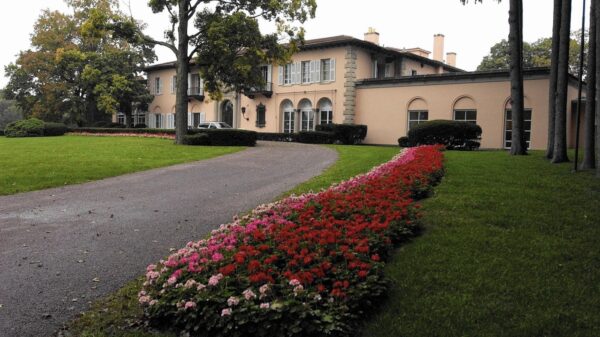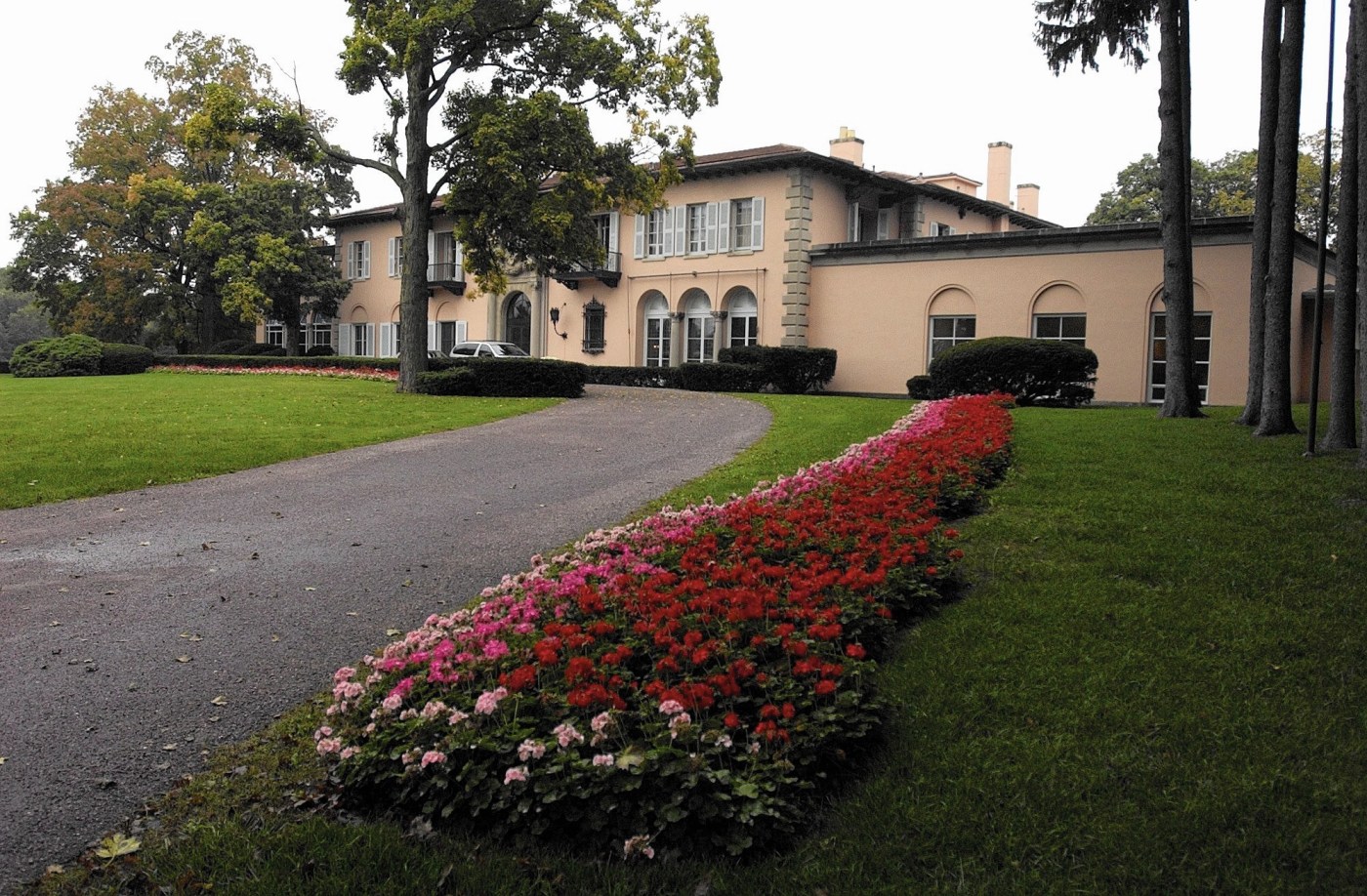UPDATE: In a stunning move, the village of Vernon Hills has secured the historic Cuneo Mansion and Gardens for a mere $1. This unprecedented transfer from Loyola University Chicago was confirmed following a recent amendment approved by Lake County, marking a significant shift for this century-old landmark.
The agreement, finalized just last week, paves the way for the village to close on the property in January 2026. Kevin Timony, Vernon Hills Village Manager, stated that the village is currently undergoing a meticulous due diligence process to ensure the future of this historic site.
Loyola expressed gratitude to those who have utilized the mansion for events, including weddings. The university has operated Cuneo Mansion at a considerable loss, with operating deficits nearing $4 million since 2015, prompting the decision to transfer ownership.
The mansion, which was gifted to Loyola in 2009, is not only a cultural landmark but also a financial burden, having required over $8 million in maintenance and improvements. Timony emphasized the village’s commitment to preserving the mansion, stating, “The village certainly recognizes the significance of this property.” He confirmed that while the option to demolish exists, the ultimate goal is preservation.
While weddings will cease for now, Vernon Hills plans to engage the community over the next year to determine the best long-term use for the property. The next steps involve brainstorming community-oriented uses that would also generate income while ensuring the mansion’s historical integrity remains intact.
The Cuneo Mansion, designed by renowned architect Benjamin Marshall, exemplifies Italian Renaissance revival architecture and features exquisite landscaping by Jens Jensen. Its rich history dates back to its construction between 1914 and 1916 for Samuel Insull, an influential figure in the electrical industry.
According to local historian Susan Benjamin, the mansion provides a rare glimpse into the opulent lifestyle of early 20th-century Chicago elites. She expressed hope that Vernon Hills will transform the mansion into a public museum, allowing visitors to experience its architectural beauty and historical significance.
As Vernon Hills takes on this custodianship, the challenge lies in balancing public accessibility with preservation efforts. “You’re not just preserving it for a handful of people,” Benjamin noted, underscoring the importance of showcasing the lifestyle of a bygone era.
The future of Cuneo Mansion remains uncertain, but one thing is clear: this iconic property will soon enter a new chapter under Vernon Hills’ stewardship. Community engagement will be critical as plans unfold, and the village aims to honor the mansion’s legacy while exploring innovative uses that serve the public interest.
Stay tuned for more updates on this developing story as Vernon Hills prepares to embrace its new responsibility.



































































